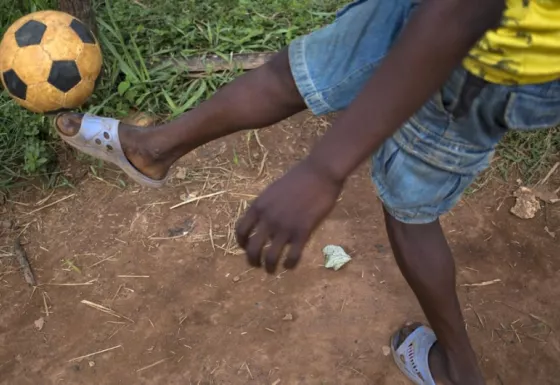The UN defines child soldiers as 'children associated with armed forces and groups', or 'CAAFAG' for short.
Not all children have armed roles in these groups, so referring them as 'child soldiers' isn't always accurate:
"A child associated with an armed force or armed group refers to any person below 18 years of age who is, or who has been, recruited or used by an armed force or armed group in any capacity, including but not limited to children, boys and girls, used as fighters, cooks, porters, spies or for sexual purposes."
Some children are abducted by armed groups, but some are lured in by promises of education, security, money and status, and others are indoctrinated or forced.


